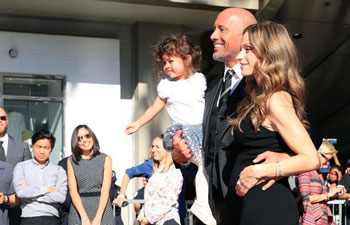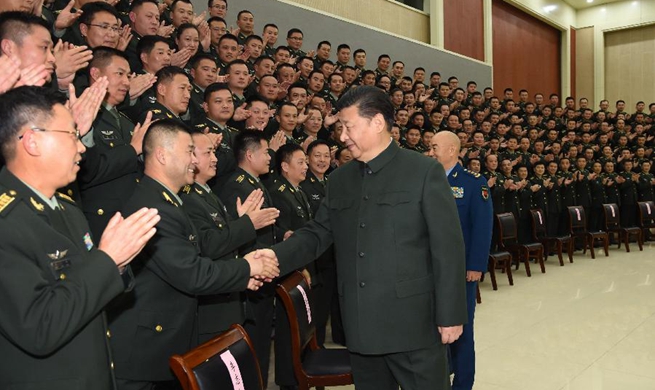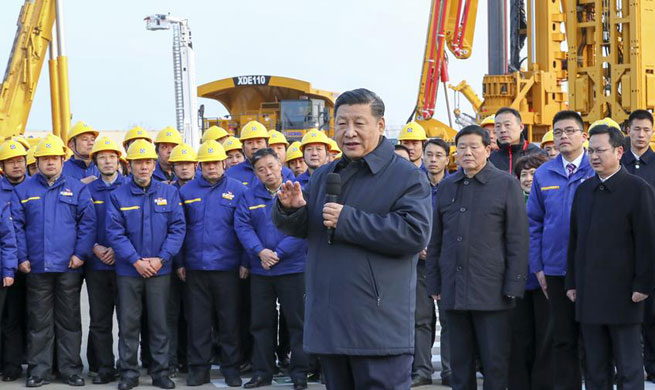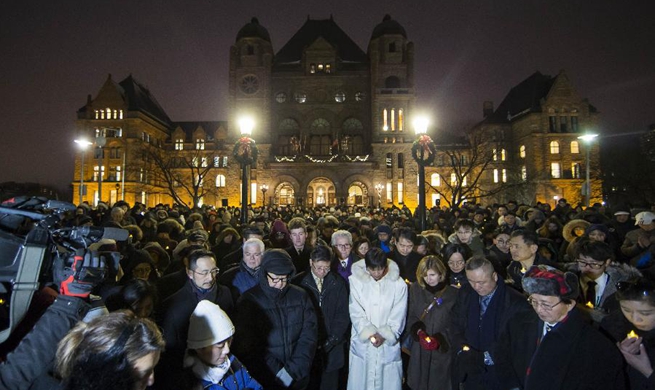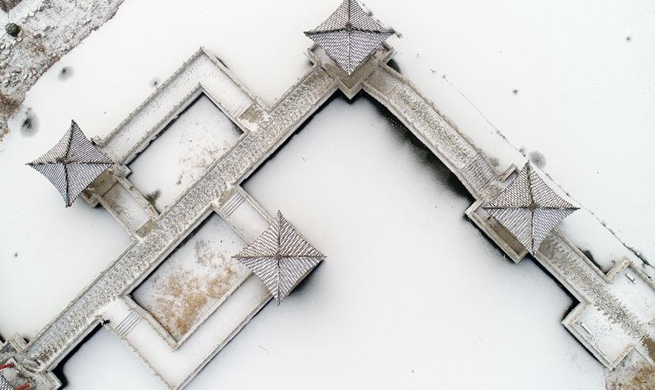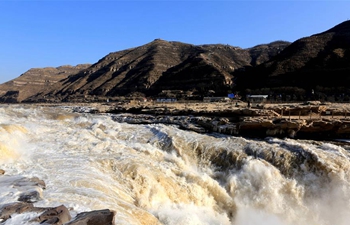by Matthew Rusling
WASHINGTON, Dec. 13 (Xinhua) -- U.S. President Donald Trump's decision to recognize Jerusalem as the capital of Israel could complicate relations with Muslim countries in the Middle East, and even exclude Washington from Middle East peace talks, U.S. experts have said.
"His action complicates relationships with Islamic countries in many places around the world. They think the United States is being one-sided and is not a fair arbiter of Mid-Eastern policy," Brookings Institution Senior Fellow Darrell West told Xinhua.
This comes after Trump's ground-shaking announcement that the United States would recognize Jerusalem as the capital of Israel -- a highly controversial move, given the importance of the city to several religions.
At a summit in Turkey on Wednesday, Arab leaders condemned Trump's decision, some saying the United States should no longer play a role in the decades-long peace process between Israel and the Palestinians.
"If the president only recognizes Israel's claim to the city ... his decision will be universally condemned in the region and globally," Dalia Dassa Kaye, director of the Rand Center for Middle East Public Policy, told Xinhua.
Close allies like Jordan will be vulnerable to blowback domestically, Kaye added.
"Once again the United States is isolated globally with no clear strategic gain. And it risks inflaming regional tension and increasing anti-American sentiment," the senior political scientist said.
Turkish President Recep Tayyip Erdogan said Wednesday that the U.S-led Middle East peace process is now over during a speech at the end of the summit of the Organization of Islamic Cooperation, a group of 57 members.
Erdogan said it was "out of the question" for the United States to mediate the peace process as it has previously done, adding that Muslim leaders should discuss the matter among themselves, and perhaps bring the issue to the United Nations.
West said Trump's move will hamper ongoing peace efforts.
"Trump already is seen as a divisive force in the Middle East and other places around the world. His action of deciding to move the embassy will intensify negative sentiments about him and make it more difficult to make progress in the Middle East," West said.
West said that Palestinians feel the decision favors Israel. "They are angry about the unilateral decision and feel it is completely unfair to them."
Iran last week called on nations worldwide to stand against Israel's claim to Jerusalem. Iran's military chief of staff, Major General Mohammad Bagheri, said this week that Muslim and Arab countries are facing a historic test regarding Jerusalem.
Iran has over the decades opposed Israel's control over Jerusalem, and has threatened to use force against Israel in response to Trump's move.
Still, while many Arab leaders predicted widespread chaos over Trump's announcement, protests have not been as intense or deadly as predicted, and they appear to be slowing down. Some experts say that is because Palestinians are tired of the violence and have been worn down by it all.
Some portion of Trump's hardline stance in favor of Israel has to do with appealing to the religious wing of his conservative base, as a significant portion of his base's evangelical wing favors strong ties with Israel.
Experts also note that the United States and Israel have strong cultural ties, and that Washington has been a strong supporter of Israel since the founding of the Jewish state in 1948.
In the wake of World War II the United States has made it known that Jews are very welcome there, whereas many European countries still harbor a deep dislike of Jews. That is especially the case in places like France, where a surge of Muslim immigrants in recent years has sparked a new wave of virulent anti-Semitism and violence perpetrated by extremist Muslims.
For its part, the Trump administration on Wednesday said it would continue to work toward a Middle East peace plan, with State Department spokeswoman Heather Nauert saying she believes the plan will benefit both sides.





